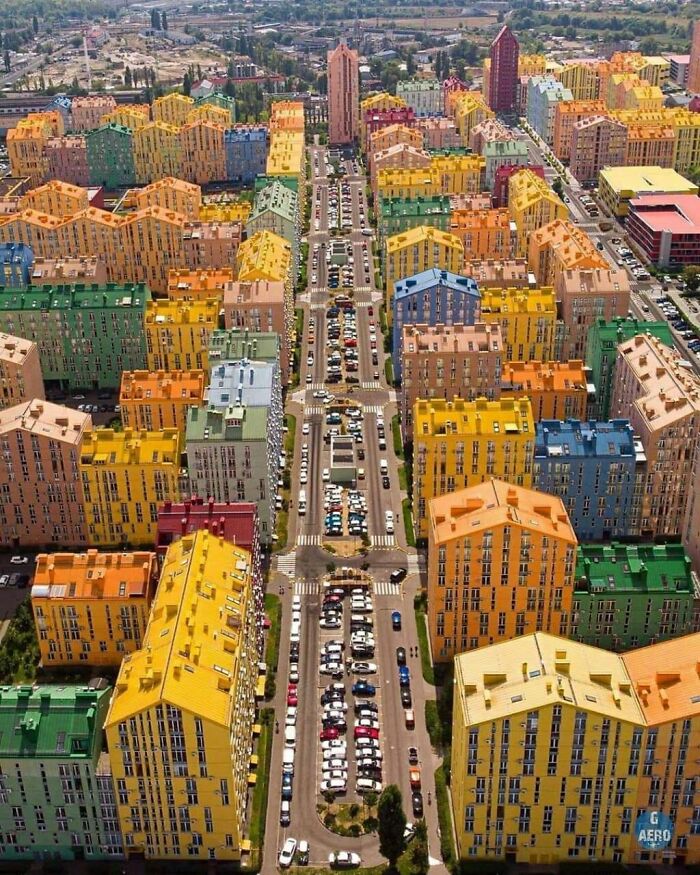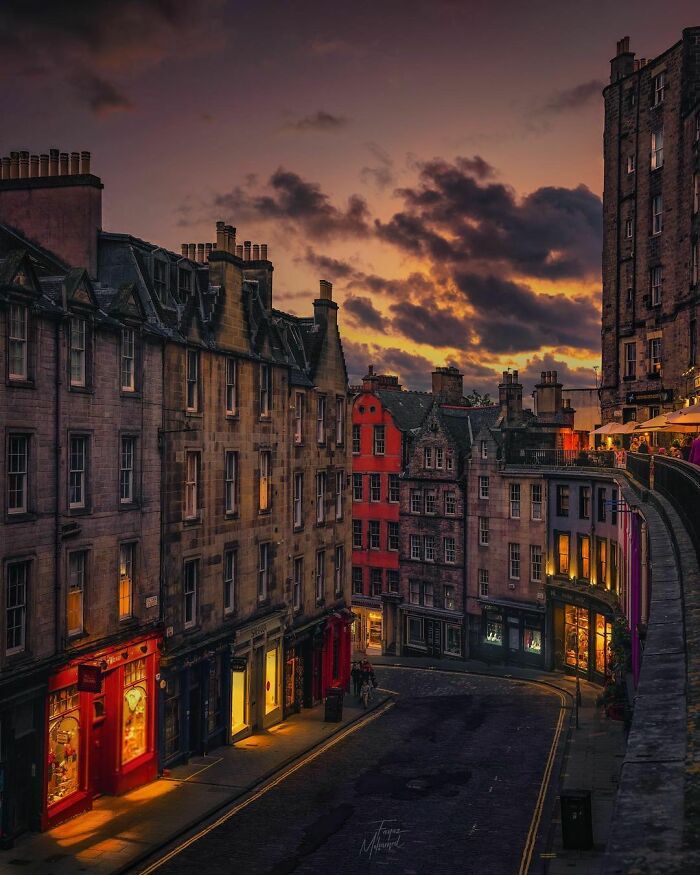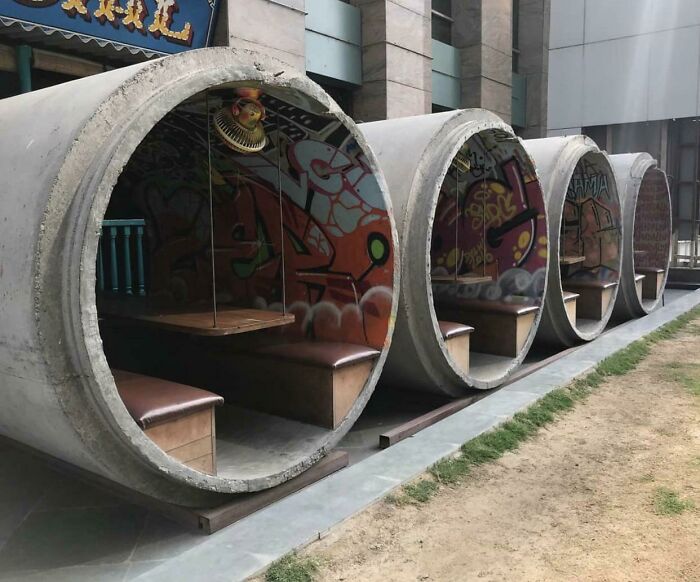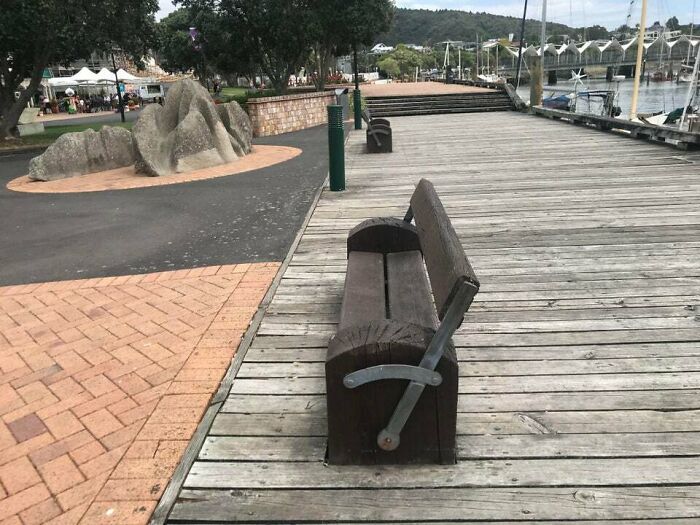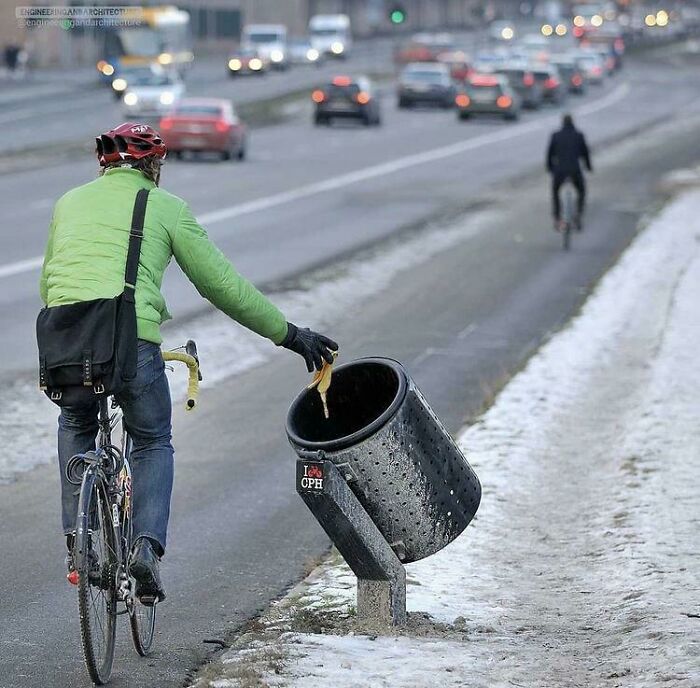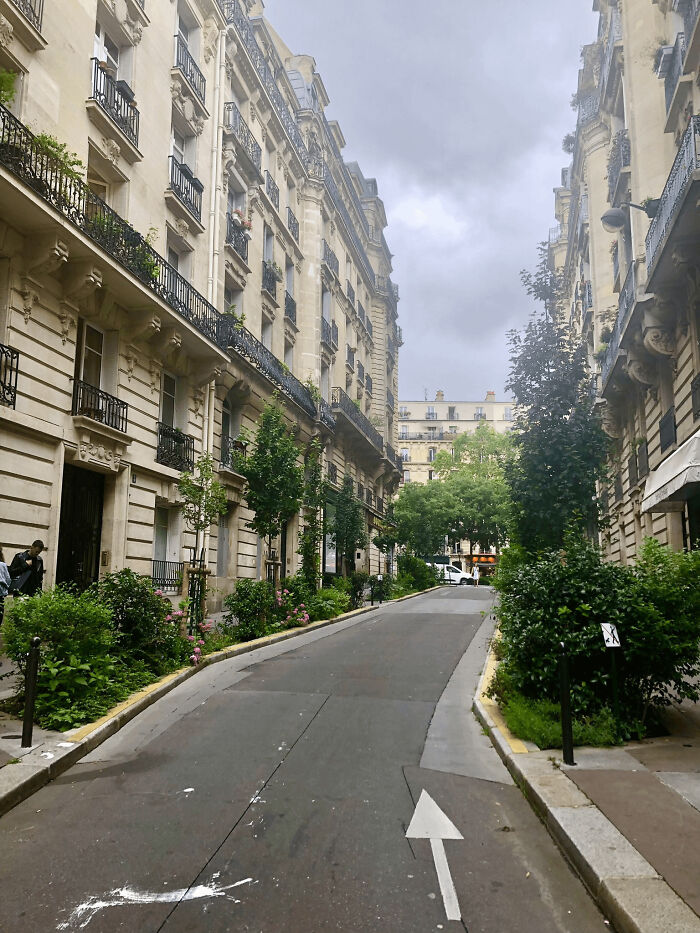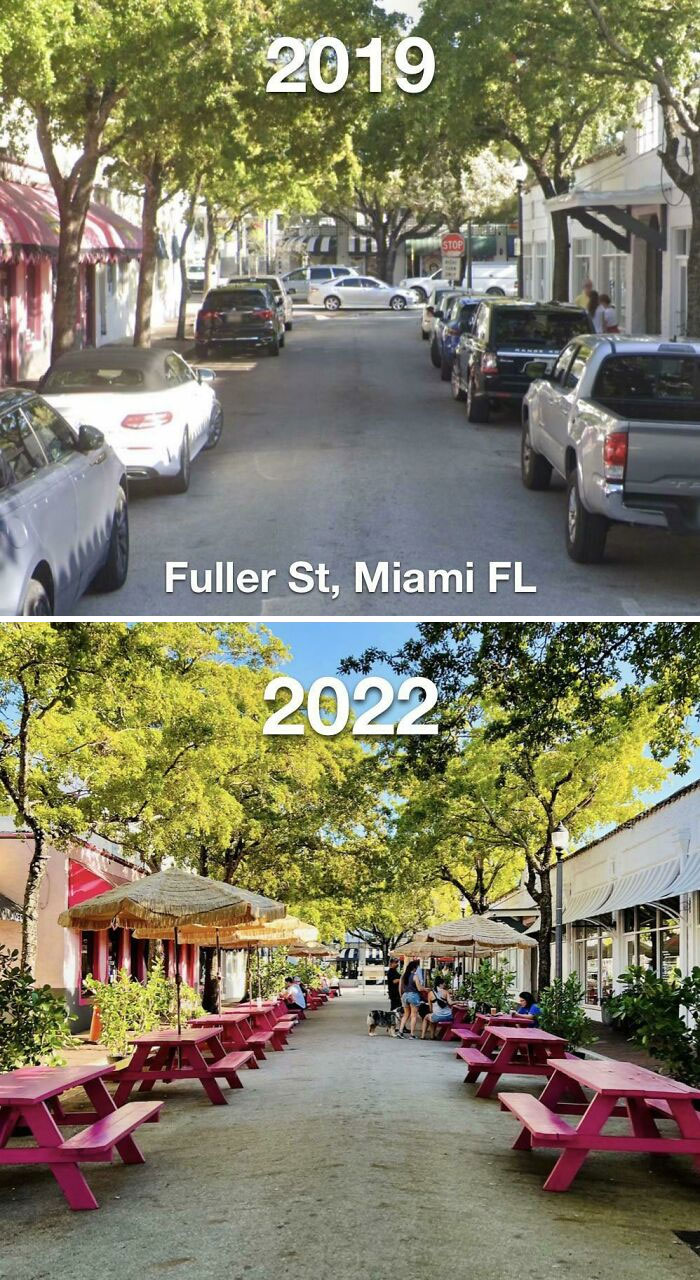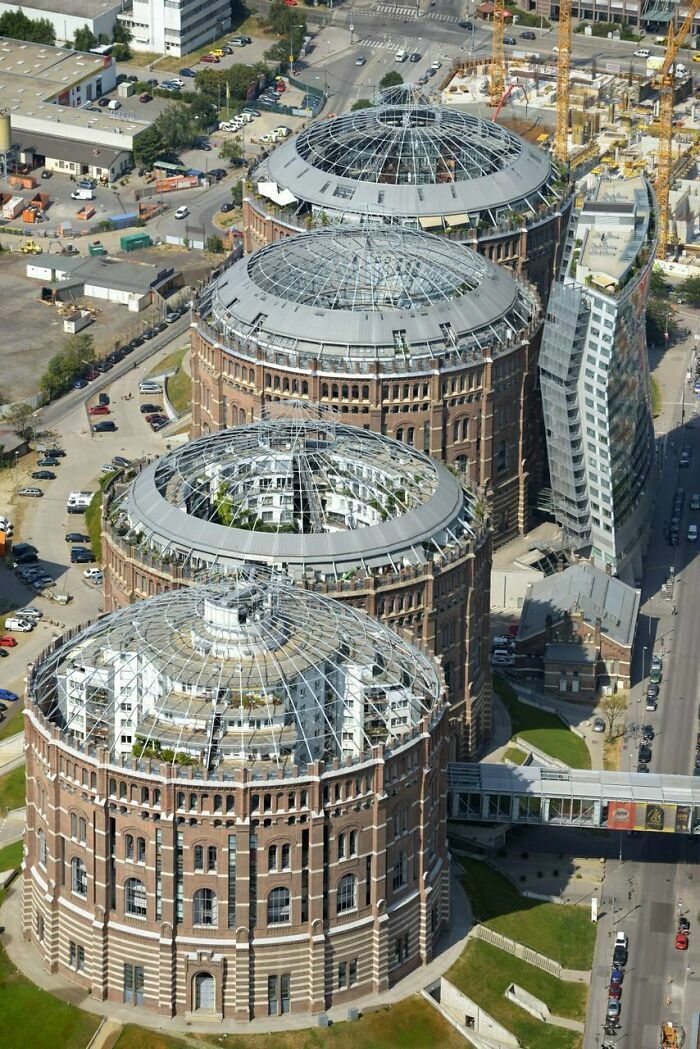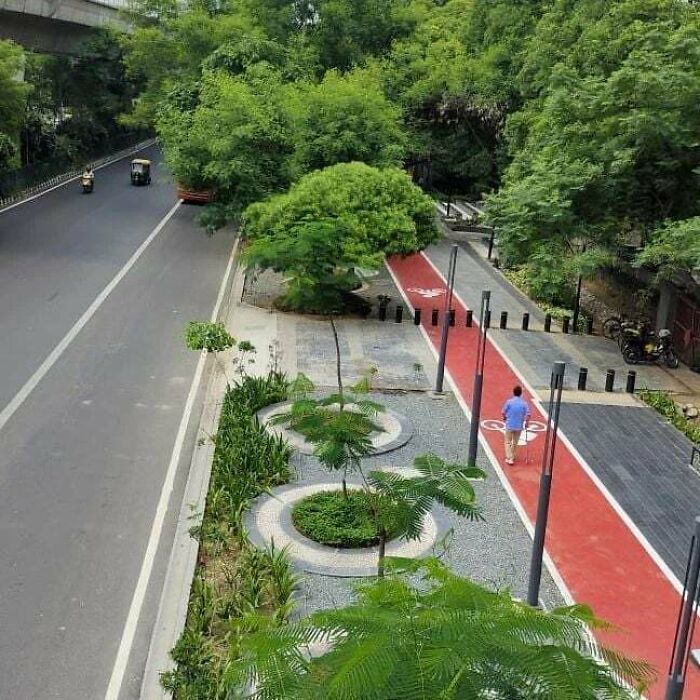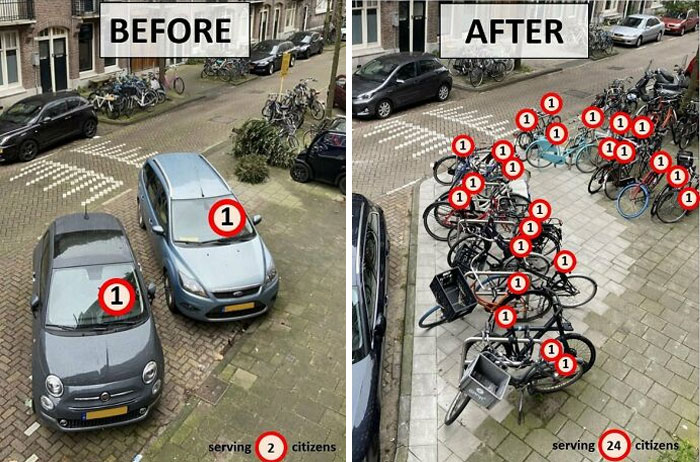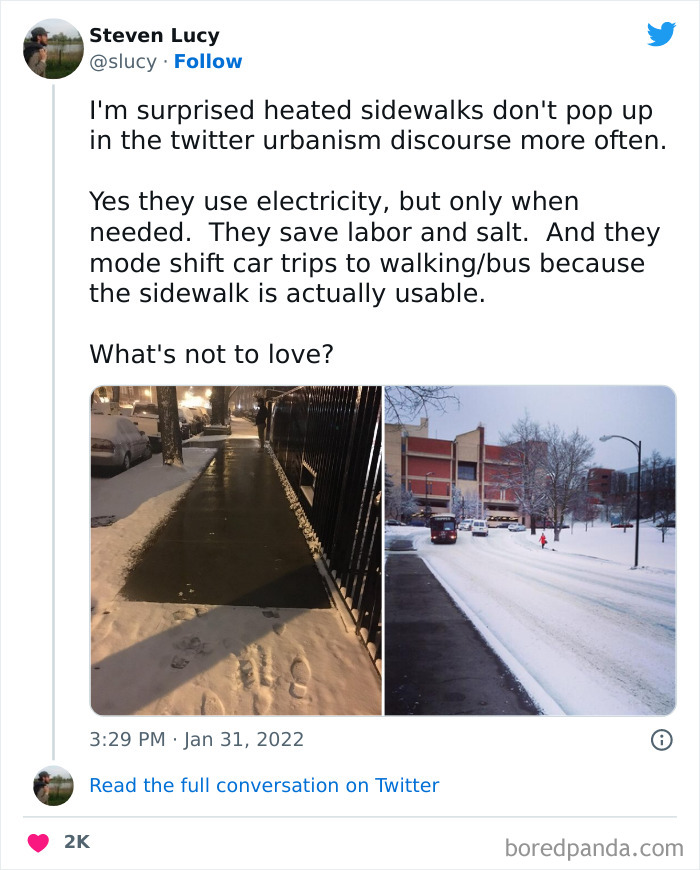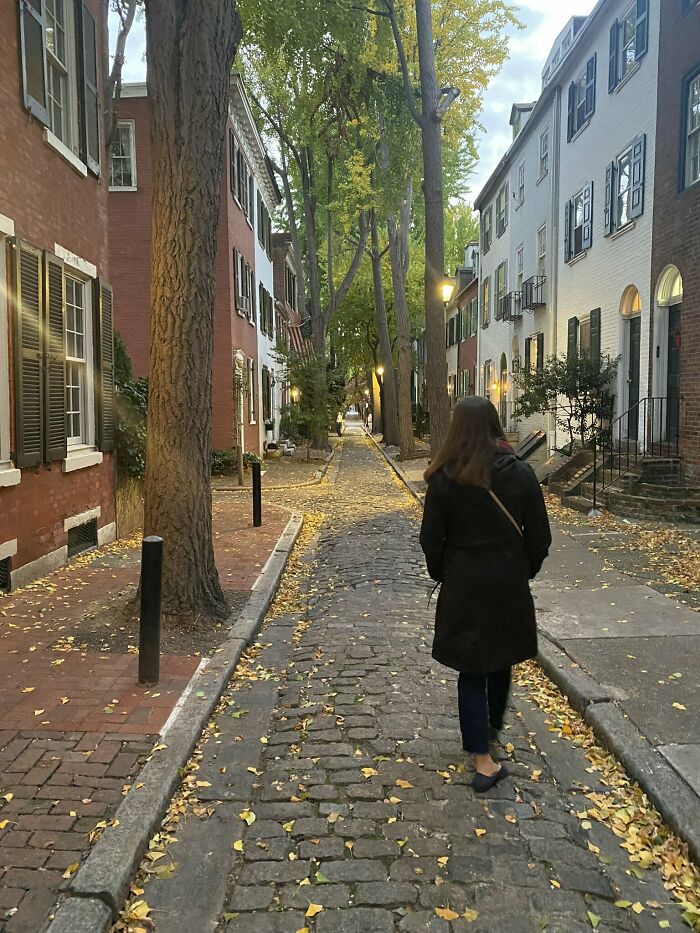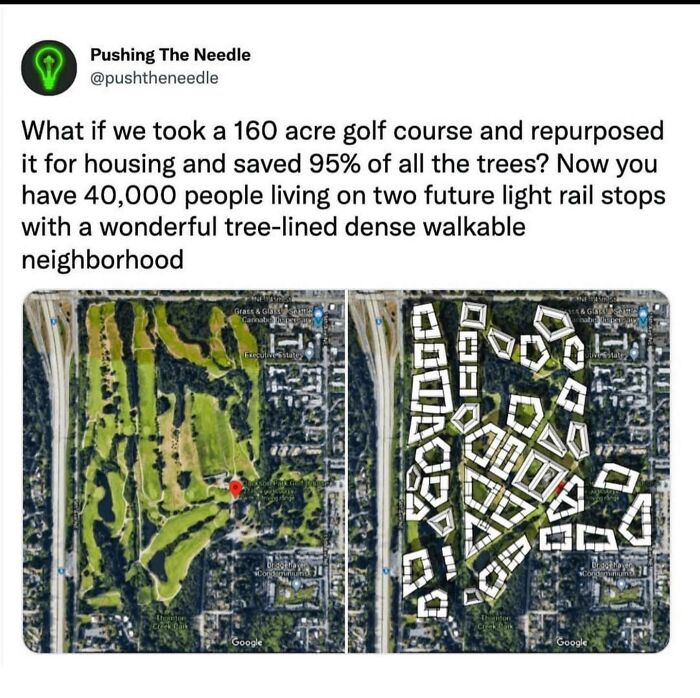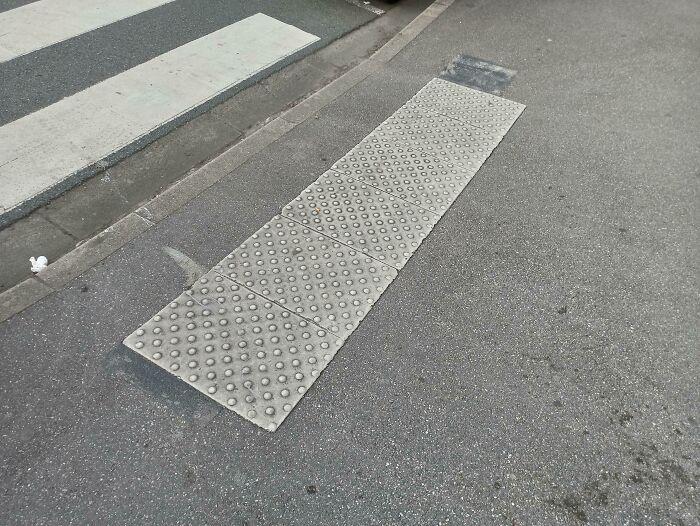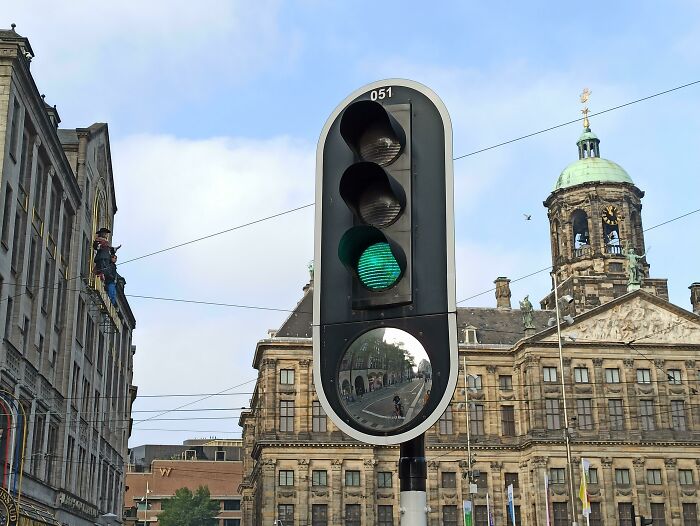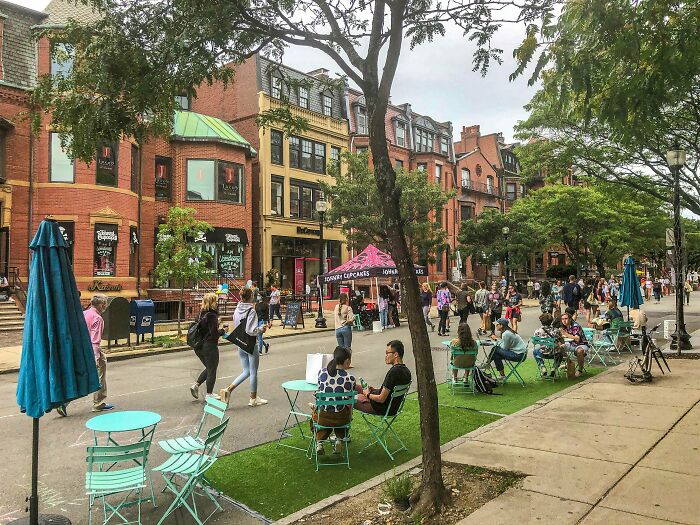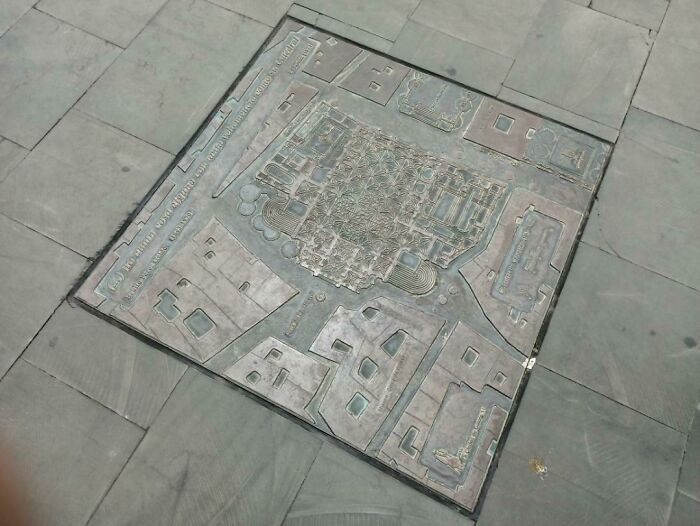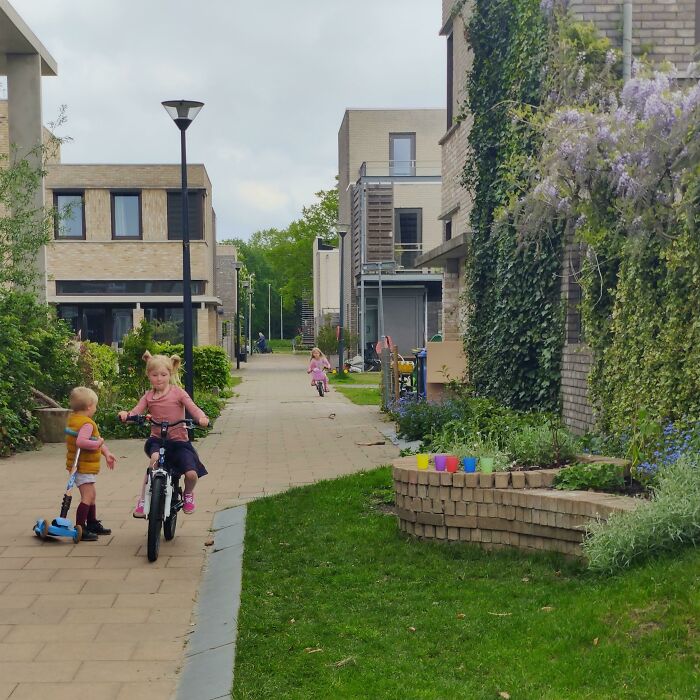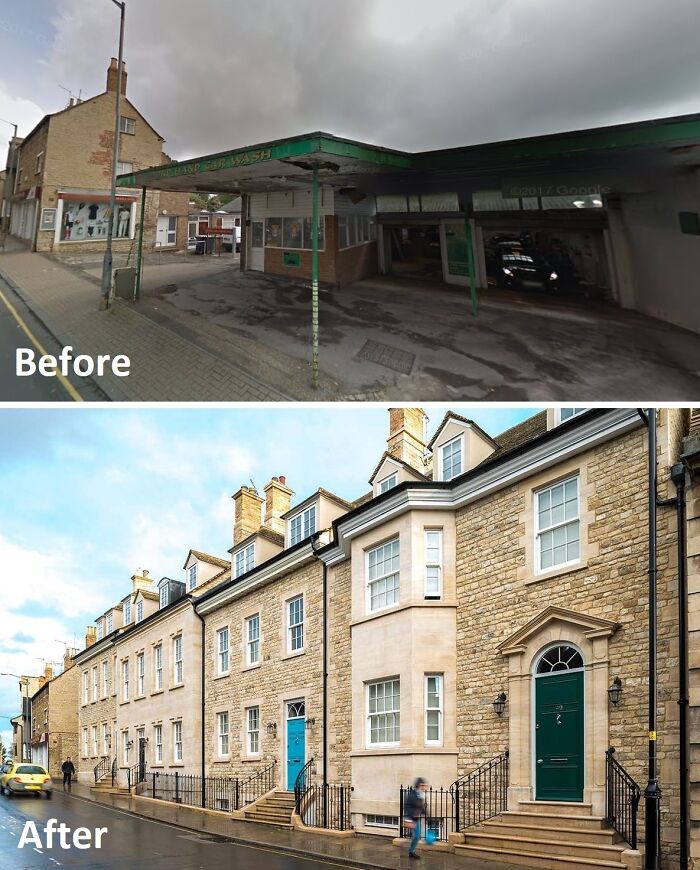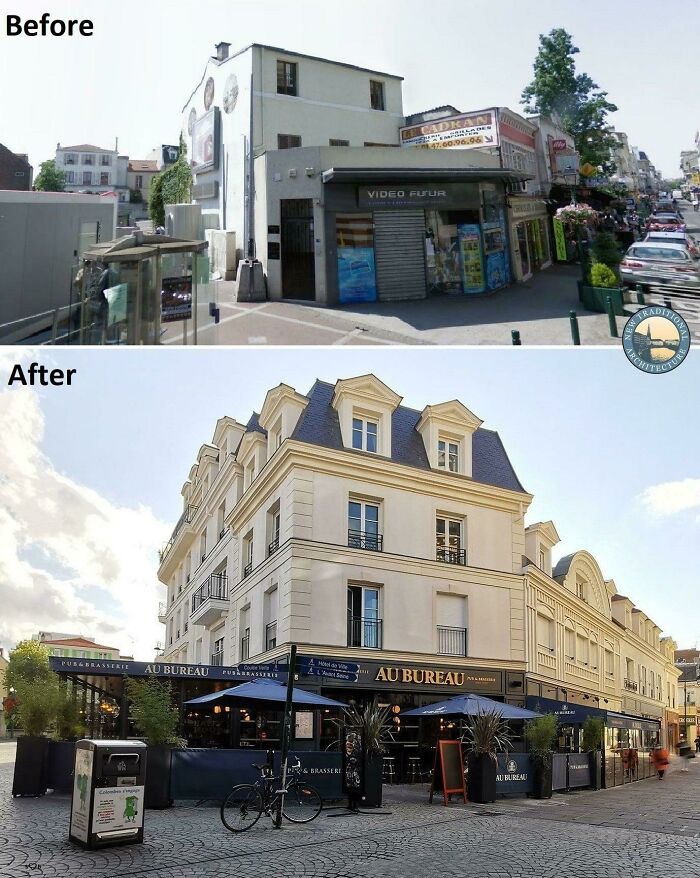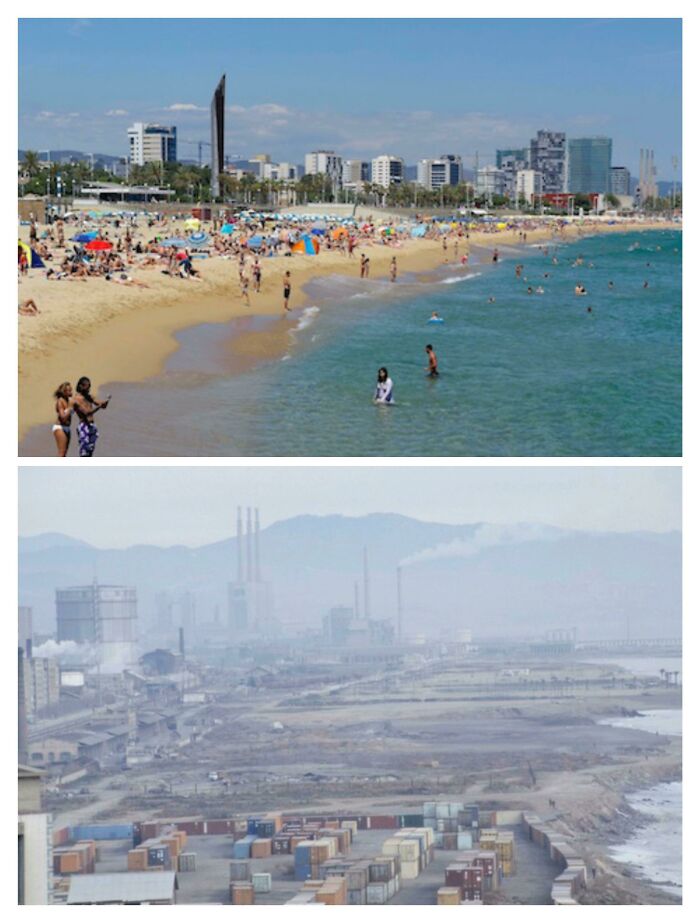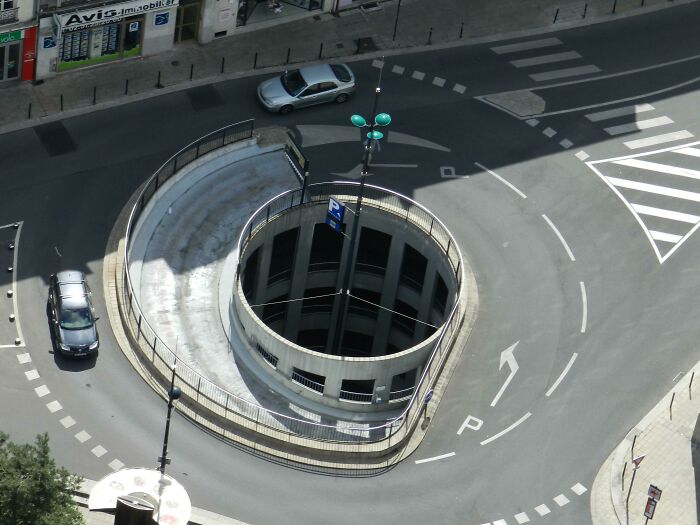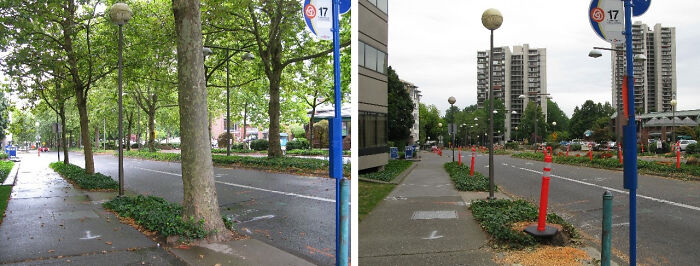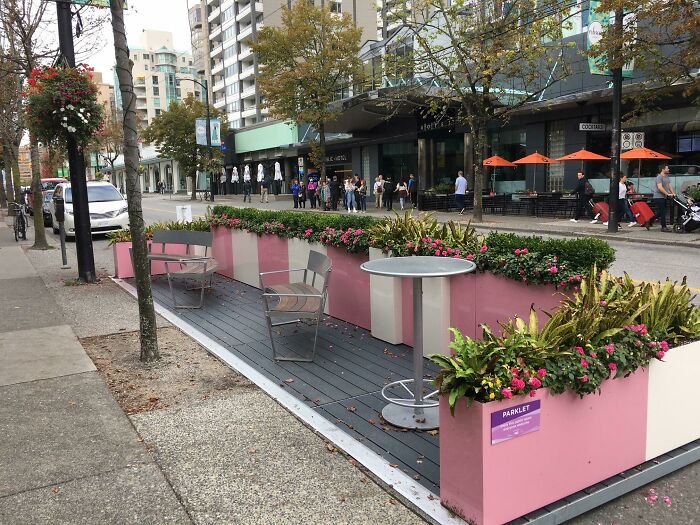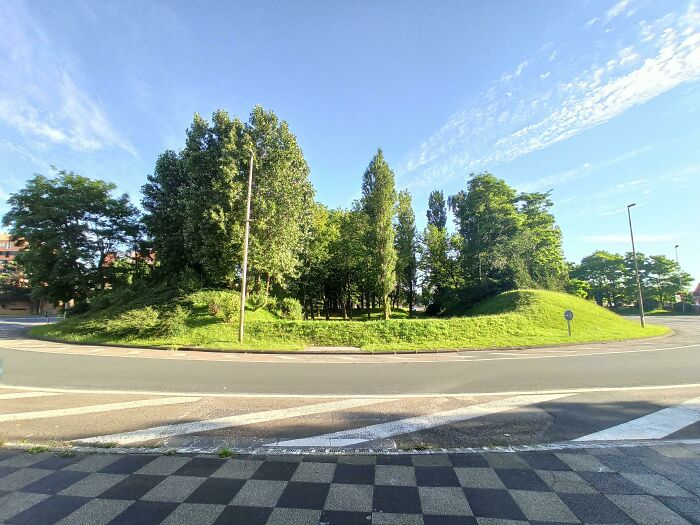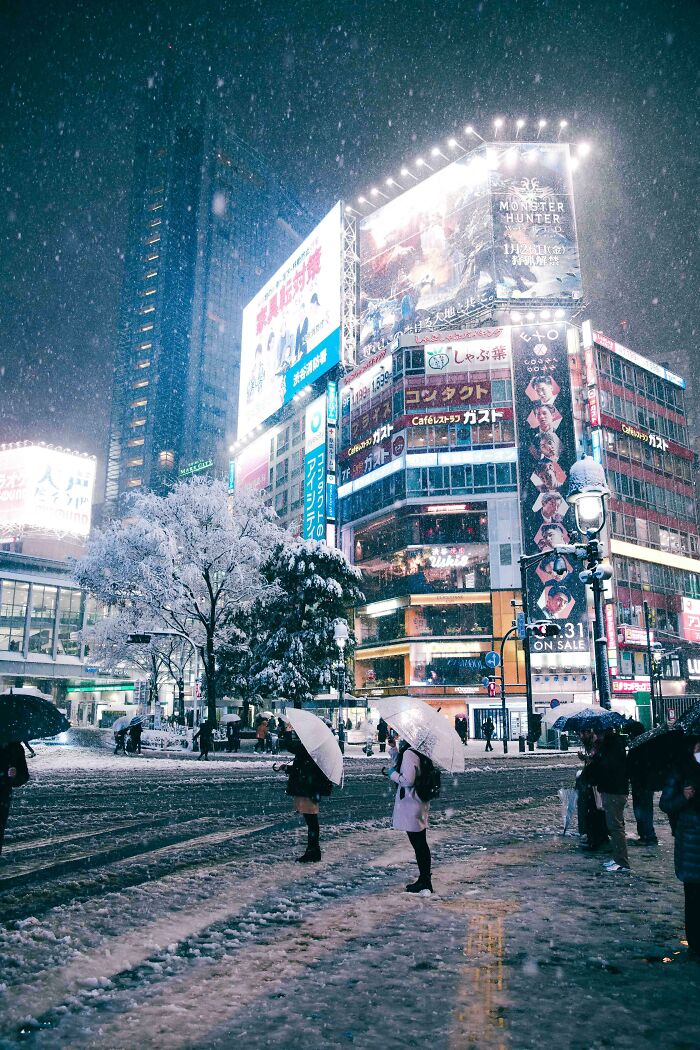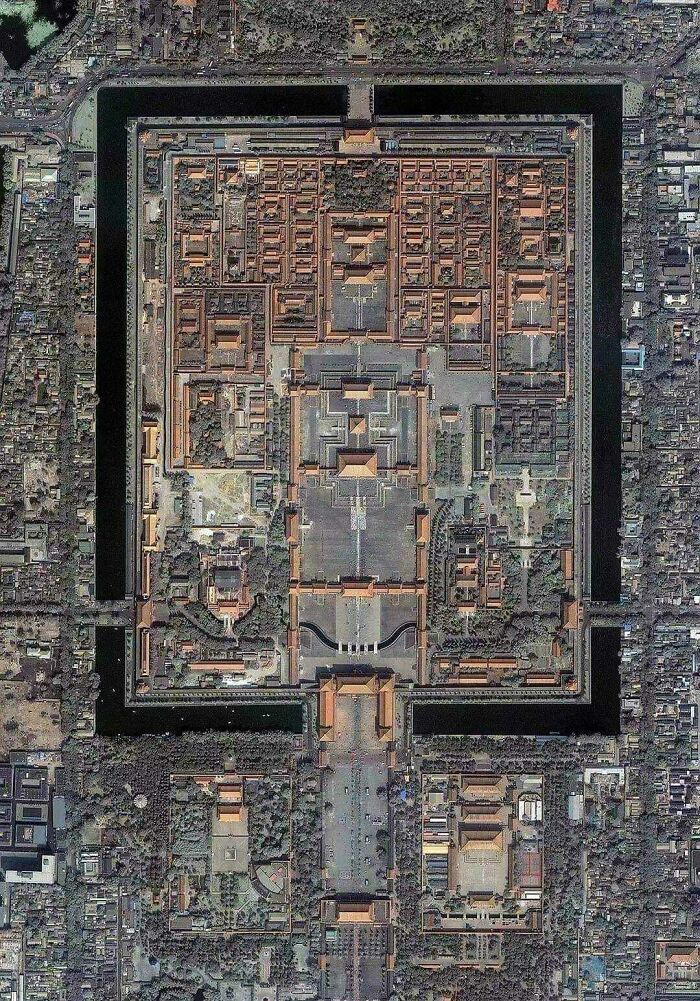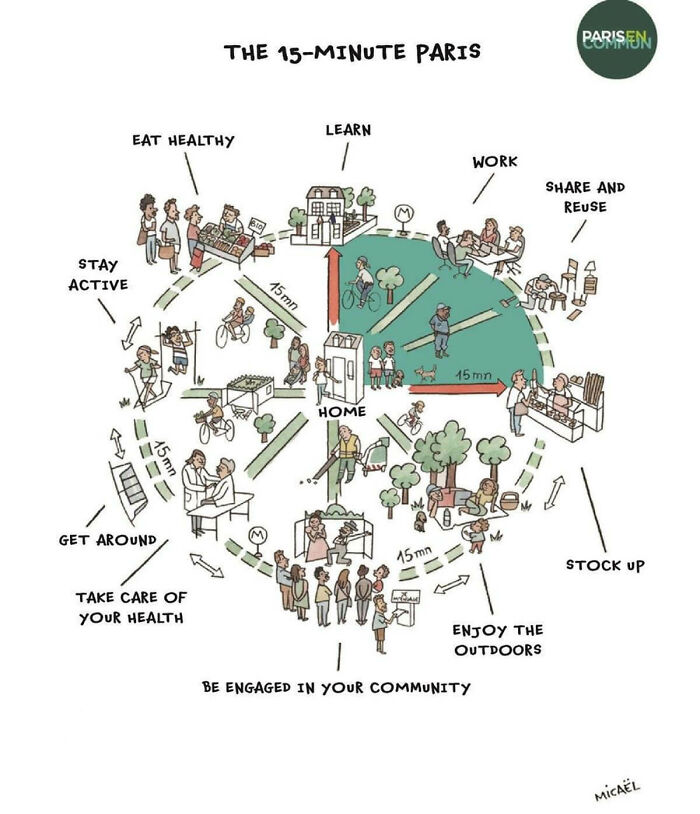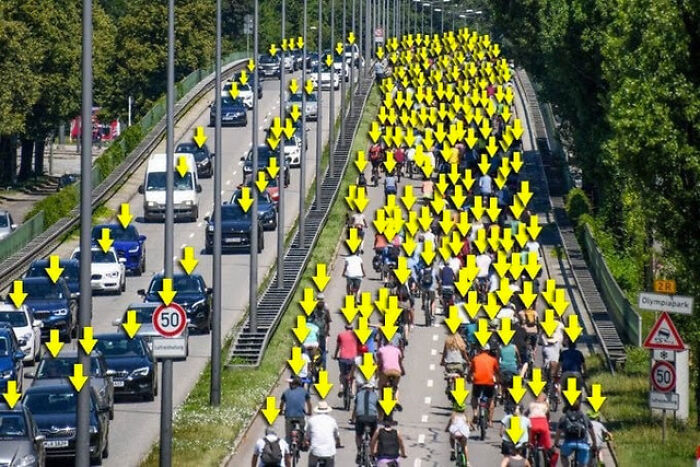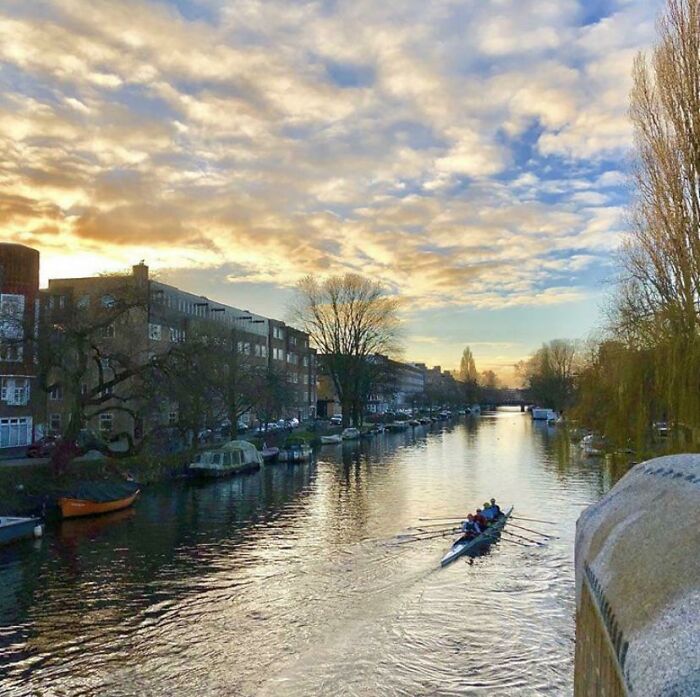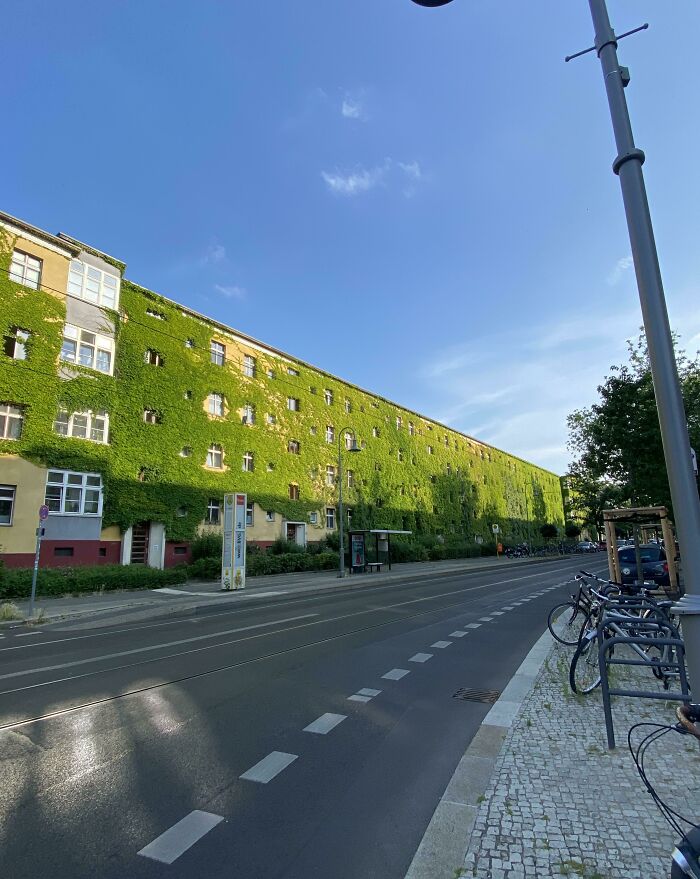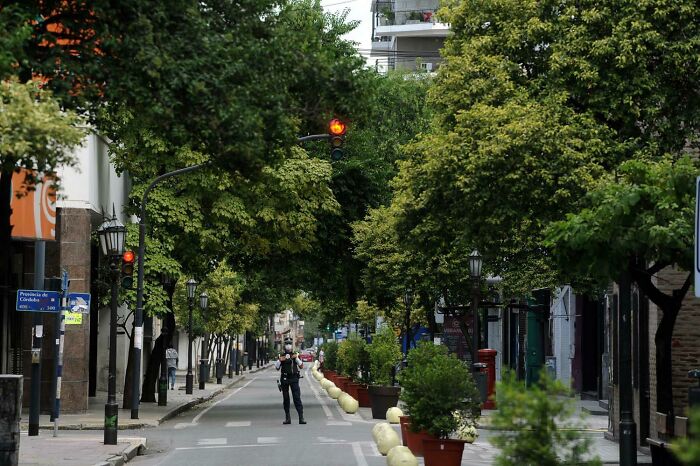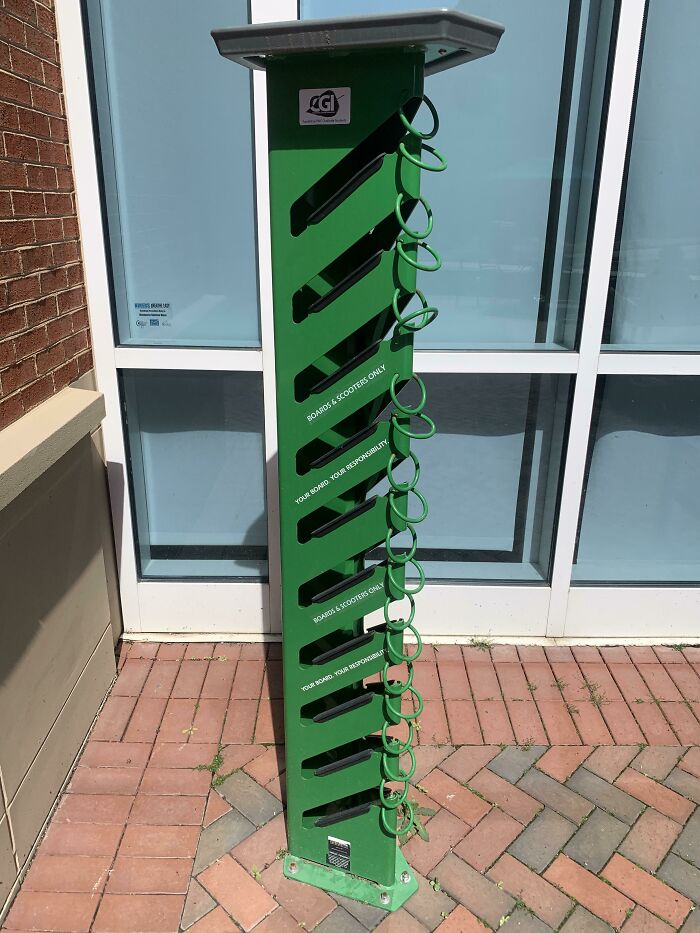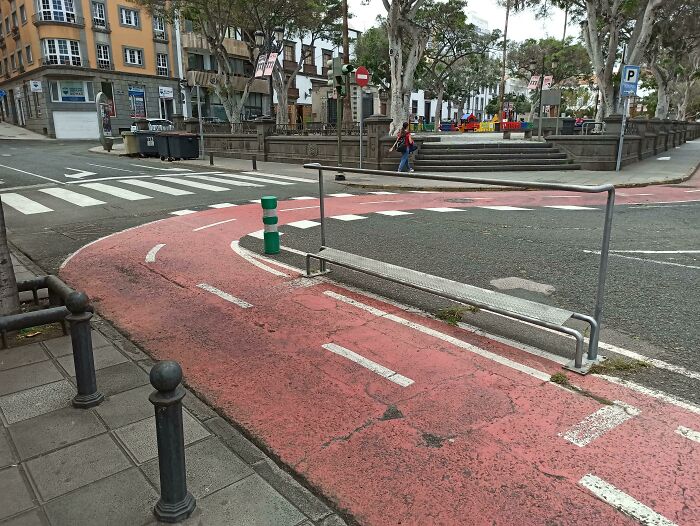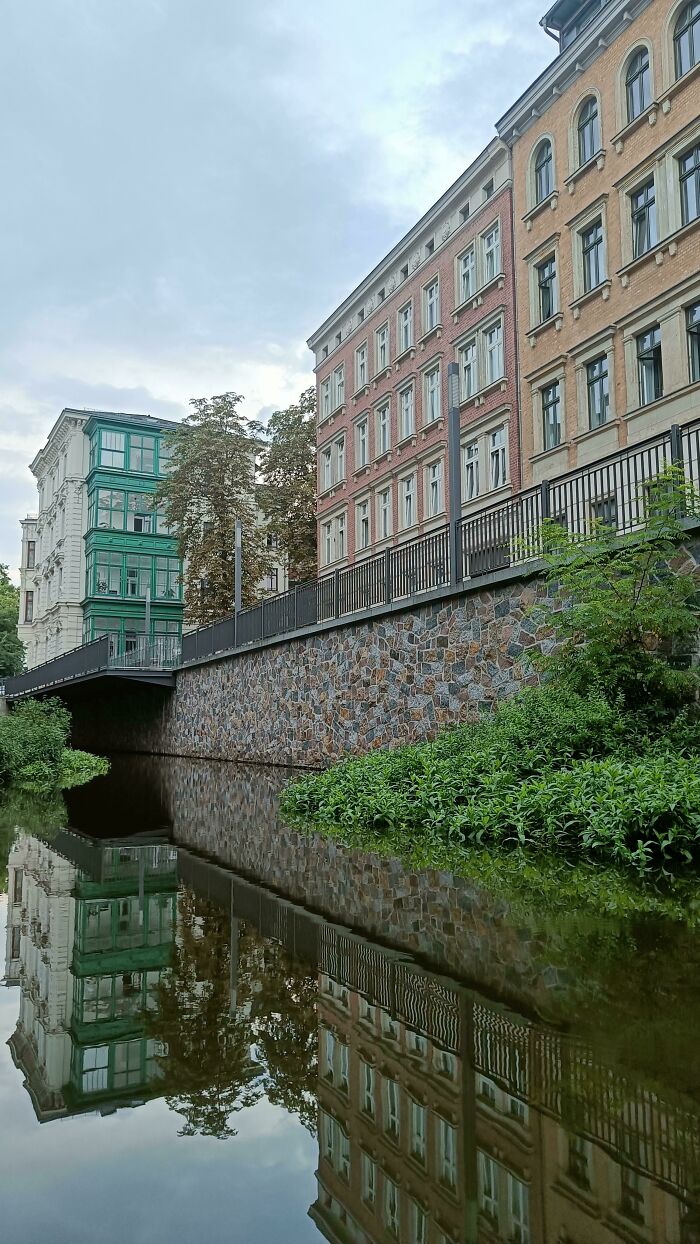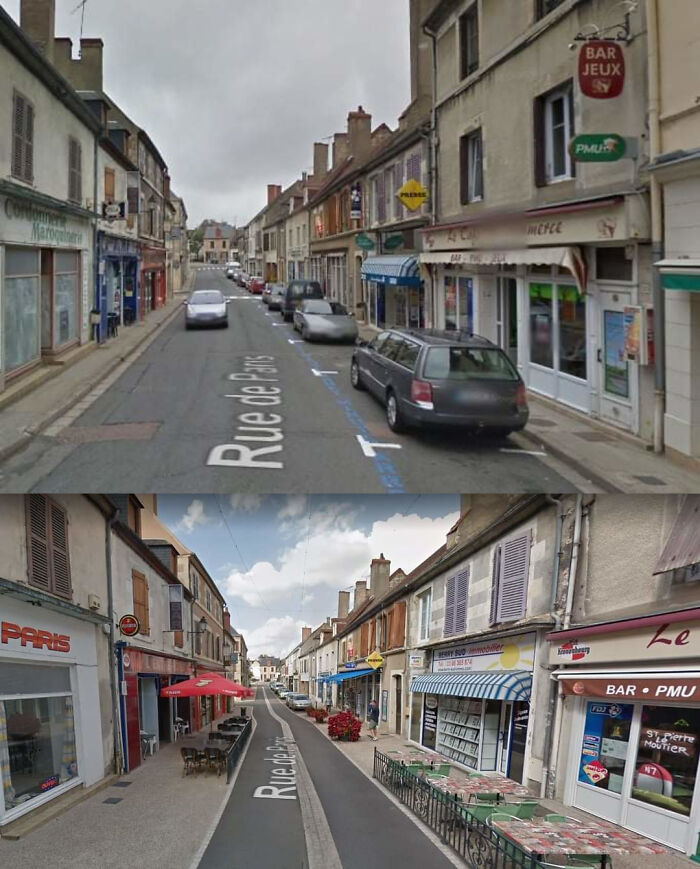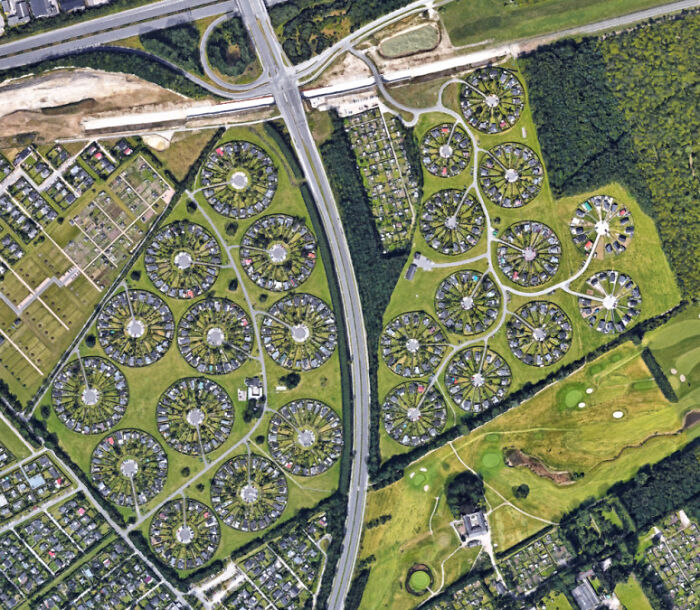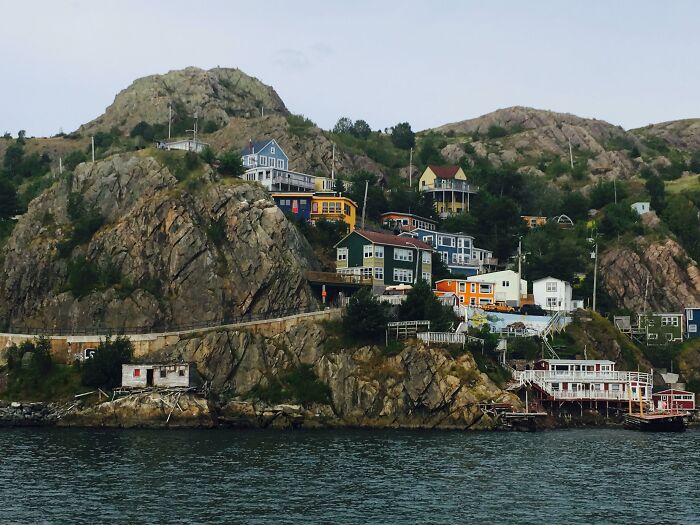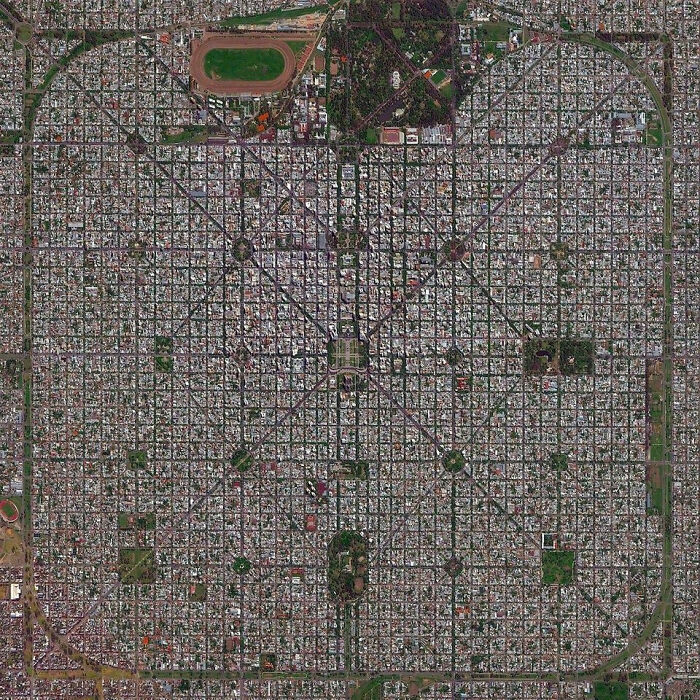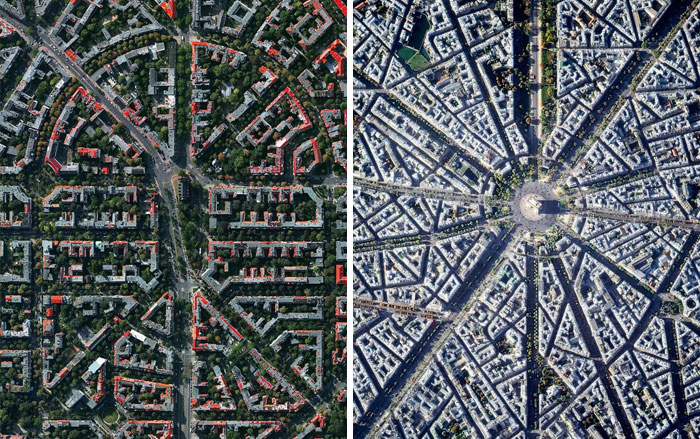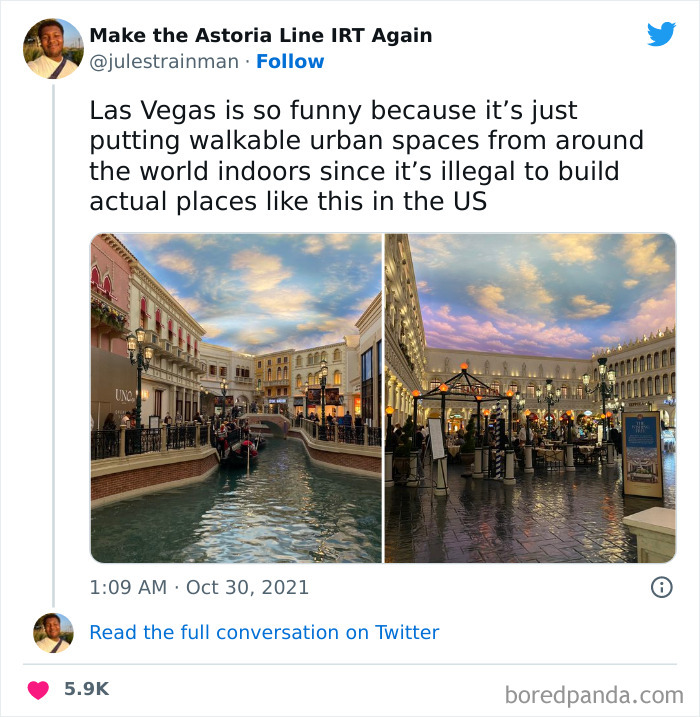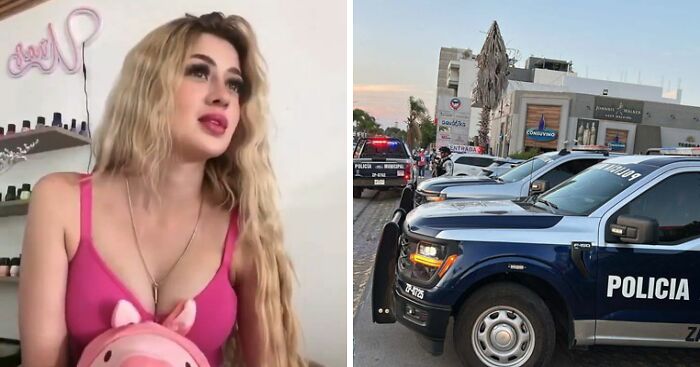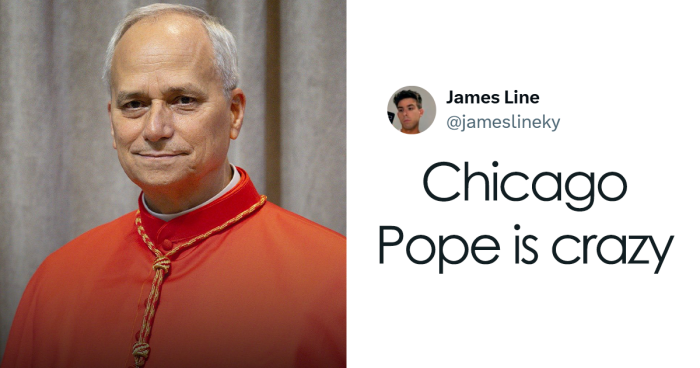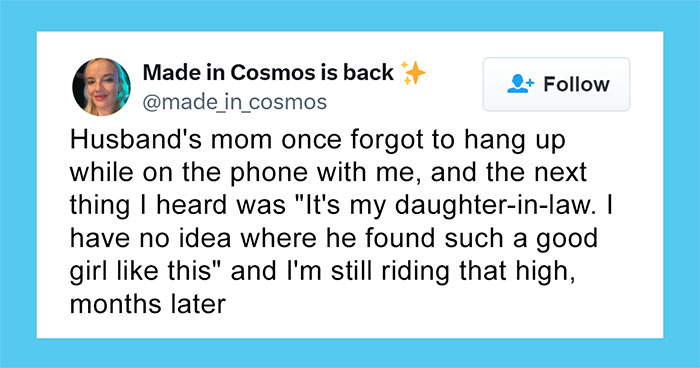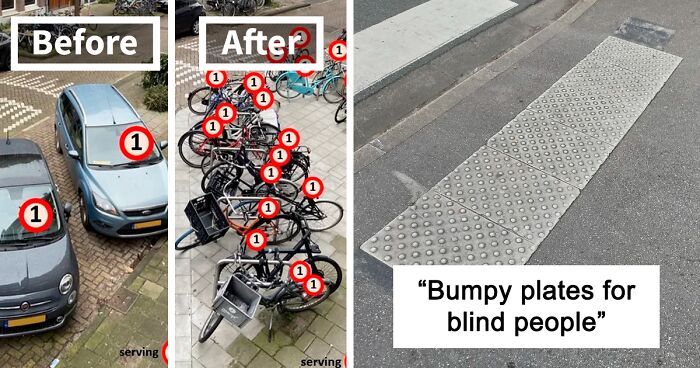
People Are Sharing The 50 Best Examples Of ‘Urban Planning’ They’ve Seen
InterviewCities may have loads of opportunities and energy but have also been linked to a variety of issues affecting human well-being. Traffic noise, commutes, and pollution all end up affecting our stress levels and even our sleeping habits. City planners have the responsibility to ensure that we don’t all go crazy just living our lives.
As awareness about urban development grows, different online groups have formed that are devoted to showcasing the best designs or shaming the worst. We also reached out to Professor Alan March from the Melbourne School of Design to learn more about urban planning in general. So get comfortable and be sure to upvote your favorite examples. If you want to see more, check out our other article on this topic here.
This post may include affiliate links.
The Speed Camera Lottery In Stockholm, Sweden
Drive at or under the speed limit and you'll be entered into a lottery where the prize fund comes from the fines that speeders pay. Average speed reduced from 32 km/h to 25 km/h (a reduction of 22%)
Luminous Pedestrian Crossing In France, When A Person Is Detected The Lights Turn On To Warn The Drivers
It's Never Too Late To Acknowledge The Reality That Urban Highways Are A Fixable Mistake
We asked Professor Alan March to give a few examples of what are core principles he believes help a city become more livable for its residents. “High enough density to allow services such as schools, parks, infrastructure, healthcare, etc to be provided at an affordable cost. Diverse types of housing and affordable housing. A mix of rent-to-buy, rent, and purchase options, in addition to legal structures that allow co-ownership between non-family members. The ability to move housing according to life circumstances without excessive costs such as stamp duties and other fees.”
“Low energy use, access to a range of green and other recreational spaces. Excellent schools, jobs, transit, and stable representative democracy. Help for poorer, disabled, elderly, and other people with limited life choices. A relatively equal society whereby birth circumstances in terms of location and Socio-Economic Status of parents do not set out one’s life course,” he added as important things for city planners to design for.
Apartment Building With A Park At Its Center, Berlin
Holland, 1982-2020
Planned This Shot For Months Before Coming To The Us, But I Didn't Expect The Sun To Make The Rails Golden. Sometimes Photography Is Just About Being A Lucky Bastard
As the popularity of walkable cities spreads, many urban areas are making streets smaller, removing parking lots, and expanding bicycle infrastructure and walkways. The most hardline advocates actually want to fully remove most cars from urban areas and replace them with robust and extensive public transportation alternatives. We wanted to know his take on the growing anti-car movement and whether it is too extreme of a solution.
I Dont Know Why, But I Just Love When City Elements Wrap Around Nature Like This. [oc] Photo Taken In Stockholm, Sweden
Comfort Town, An Old Industrial Site In Kyiv Built In Response To Brutalist Soviet Era Apartments Buildings
Edinburgh, Scotland
“The idea of a carless city has merit. Designing the city with few or no cars will mean we emit considerably fewer greenhouse gases and have cheaper and more equitable transport via mass transit and walking (and for the many people who cannot drive for many reasons). We will waste fewer resources on car spaces and freeways, get to know our neighbors better, have lower obesity in children (eg walking to school) and adults, and have fewer accidents and other health impacts from pollution. It will depend on cities being designed properly to achieve this.”
Concrete Sewer Pipes Used As Outdoor Seating
Imagine if they started rolling, it would be like a hamster wheel :D
These Public Benches Are Reversible, So You Can Choose To Look At People, Or Boats
Bin For Cyclists In Denmark
Lastly, for some contrast, we were curious to know if he had any examples of cities that made terrible design choices. Professor Alan March specified that Houston was a ‘good’ example of a bad city, due to “environmental degradation, huge inequality of wealth and housing provisions, gated communities for rich.” It also suffers from an overreliance on cars, as over 75% of residents have stated that they need a motor vehicle to go about their daily tasks.
Paris, 9th Arrondissement. These Miniature Gardens Used To Be Car Parking Spaces Until A Few Years Ago. The City Reclaimed Them, And Replanted Them With Fruit Trees And Flowering Shrubs
This Does Put A Smile On My Face
One benefit of the pandemic. My town blocked off streets in the historic area so that restaurants and cafes could have outdoor seating. It worked out so well, they decided to keep it. Now it's a pretty, flower-filled area for strolling, shopping, and dining. Small boutiques have moved into the empty storefronts and thrived because of the great foot traffic.
Vienna Gasometers, Gas Storage Tanks First Built In 1896 And Converted Into Mixed-Use Developments Between 1995 And 2001
The abundance of cars on the street creates congestion that had led to Houston having one of the longest average commute times in the United States. This is a result of a comparatively low urban density compared to other US cities, as services, jobs, and public facilities are rarely close together. It’s not all doom and gloom, however, the city authorities are planning to introduce more bicycle infrastructure.
My City, Delhi Is Redesigning Its S**tty Car Centric Good For Nothing Roads, Here's Half Of A Wide A** Road Reclaimed
If there was a way that no more car registrations were approved by the Transport Authorities. Or at least no family of two adults could own more than one car, or similar. Excessive car ownership and usage is a problem. As well as the logic of owners that since a new car has been acquired, the universe owes them parking spaces.
"Gion Quarter" Kyoto, Japan
Urban Space Is Complex. But The Math Is Relatively Simple
Heated Sidewalks
Quince Street, Philadelphia. Legalize Narrow Streets!
How Things Would Be Different With A Little Bit Of Rezoning And A Land Value Tax
This will never happen. You really think that the elite will give up their exclusive retreat to spend their fortune on totally unnecessary things and place for showing off their wealth and power, for something as mundane as housing for Plebs?
Bumpy Plates For Blind People, Everywhere In France, I Hope It's The Same For The Other Countries Too
You don’t have tactile paving in the US? There are several types in the UK; top & bottom of stairs, crossings, edge of platforms, cycle paths etc.
Traffic Light With A Mirror To Allow The Drivers To See The Pedestrians/Cyclists That Are In Their Blind Spots
“Forget The Motor Car And Build Cities For Lovers And Friends.” - Lewis Mumford
Although I'm all in for green cities, I really don't understand all this "remove the car parks". Maybe I'm missing some context, but taking away these spots will only make traffic worse and people angrier. And this specific pic looks like artificial grass
There's A Map Of The District On This Plate In The Street
So We Got The Possibility To Redesign Our Street A Year Ago And We're Quite Happy With The Result
Car Wash Replaced By Beautiful New Georgian Townhouses During 2017 In Stamford UK
New Mixed Use Flats In Colombes, France Near Paris
Barcelona Now vs. In 1990
A Roundabout In Nantes (France) With An Underground Car Park Entrance
With And Without Trees, What A Difference It Makes
From Reddit: “ This is Lincoln St in Portland. Fortunately, the second picture was taken at the start of a street redesign that brought in light rail, bike lanes, and improved water drainage. And they planted new trees. Most recent street view of the same POV.”
My City Has Been Removing Some Street Parking And Making These "Parklets". It's A Much Better Use Of Space
In your opinion-- not in mine-- and having been a NYC Paramedic, these blocked off areas are a royal pain to get around, and maneuver emergency equipment around-- try carrying a cardiac patient down, having the street blocked by these idiotic bumpouts, , and trying to load into the ambualnce while traffic drives down the sidewalk to get through.- The ultimate in lazy, stupid design.
Roundabout With Some Nature In The Middle, France
This Shot I Took Of The Snow Storm In Tokyo Last Week
Aerial Shot Of The Forbidden City, Beijing
World's Tallest Indoor Waterfall
Professor Carlos Moreno's Urban Theory Of ‘15-Minute City’ - A Concept Where Everyone Has Access To All Facilities And Resources Within A 15-Minute Walk Or Bike Ride
A lot of european cities strive for this as the ideal city development. Unfortunately it is commonly assumed that its complete realisation is not yet attainable. But some cities (especially Barcelona has been a pioneer at this) try to do their best. It is generally met with concerns as usually a lot of parking spaces are removed. Only that once the transformation is complete, those parking spaces are not really needed any more. Most people in "accessible" cities do not have the need for a car, and more and more of them do not own one.
This Is Why We Should Prioritize Infrastructure For Bicycles And Pedestrians Over Infrastructure For Cars
Amsterdam
Green Houses In Berlin
Looks great but structurally very destructive to many materials over time.
Green Quarantine. Tucuman, Argentina. Photo By Diego Araoz
This is cool… but like what if the leaves dip? Then you can’t see the light.
Rack For Locking Up Skateboards And Scooters
Metal Equipment That Allow Cyclists To Stand Up Straight While Being Stationary Waiting For The Green Light. Spain
One Of The Numerous City Canals In Leipzig, Germany
Before/After, France
Anybody Know Why This Is Designed Like This? (Copenhagen Denmark)
To create a closer sense of community and connection between neighbors.
The Outer Battery, Newfoundland, Canada
Planned City - La Plata, Argentina
Unique Types Of Urban Blocks That Are Just Amazing!!
Las Vegas Creatively Getting Around Laws
Note: this post originally had 80 images. It’s been shortened to the top 50 images based on user votes.
I'm tired of people trying to make me feel guilty for using my car without knowing. I have an average salary that does not allow me to live near my work. I would put 2h30 to go with public transport (don't have 5h to spend by day on a smelly place). i refuse à job because i can park near or in the way to. Sometimes car is an obligation, not a choice or a caprice.
Same. I'm 70 years old and have COPD. I can walk OK on level terrain if I take my time and don't exert myself, but I can't walk for significant distances, I can't bike, and I definitely can't do hills, which I'm surrounded by. I can't carry half a dozen bags of groceries home from the store, and the nearest bus stop is over half a mile from my house. An electric bicycle isn't a viable option because they cost as much as a decent used car, aren't suitable for shopping trips, and where I live are only really usable for half the year. I need a car. Period.
Load More Replies... Boston-Ros...nway-1.jpg 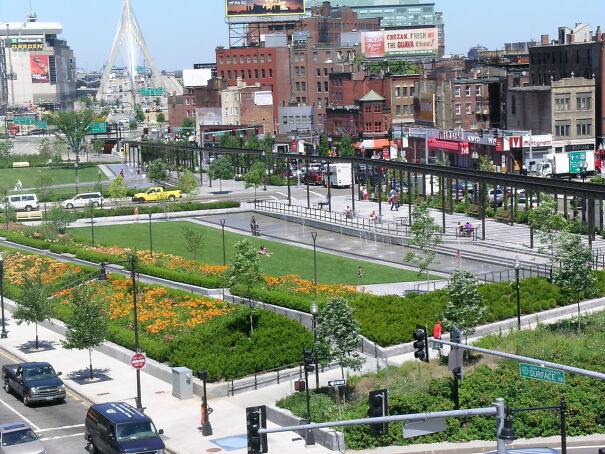 Rose Kennedy Greenway, Boston MA. Replaced the "Central Artery", an old elevated highway through downtown, dating back to the 1950s. The Big Dig, for those in the know.
Rose Kennedy Greenway, Boston MA. Replaced the "Central Artery", an old elevated highway through downtown, dating back to the 1950s. The Big Dig, for those in the know.
These urban places are great for rich, healthy, non-family people. Try moving kids, or walking with feet/hip problems for any distance. The problem has not been solved, only moved out of line of sight. Better take a friend who can circle the block until you are ready to be picked up. Outdoor places are okay in good weather -- anything less makes it impossible to enjoy. And there is no sign (yet) of homeless or trash meaning continuous cleaning. These places look great on travel pictures -- what is the reality of actually living there?
Availability of mobility scooters for free hire can help disabled people as well as maybe shuttle buses?
Load More Replies...I'm tired of people trying to make me feel guilty for using my car without knowing. I have an average salary that does not allow me to live near my work. I would put 2h30 to go with public transport (don't have 5h to spend by day on a smelly place). i refuse à job because i can park near or in the way to. Sometimes car is an obligation, not a choice or a caprice.
Same. I'm 70 years old and have COPD. I can walk OK on level terrain if I take my time and don't exert myself, but I can't walk for significant distances, I can't bike, and I definitely can't do hills, which I'm surrounded by. I can't carry half a dozen bags of groceries home from the store, and the nearest bus stop is over half a mile from my house. An electric bicycle isn't a viable option because they cost as much as a decent used car, aren't suitable for shopping trips, and where I live are only really usable for half the year. I need a car. Period.
Load More Replies... Boston-Ros...nway-1.jpg  Rose Kennedy Greenway, Boston MA. Replaced the "Central Artery", an old elevated highway through downtown, dating back to the 1950s. The Big Dig, for those in the know.
Rose Kennedy Greenway, Boston MA. Replaced the "Central Artery", an old elevated highway through downtown, dating back to the 1950s. The Big Dig, for those in the know.
These urban places are great for rich, healthy, non-family people. Try moving kids, or walking with feet/hip problems for any distance. The problem has not been solved, only moved out of line of sight. Better take a friend who can circle the block until you are ready to be picked up. Outdoor places are okay in good weather -- anything less makes it impossible to enjoy. And there is no sign (yet) of homeless or trash meaning continuous cleaning. These places look great on travel pictures -- what is the reality of actually living there?
Availability of mobility scooters for free hire can help disabled people as well as maybe shuttle buses?
Load More Replies...
 Dark Mode
Dark Mode 

 No fees, cancel anytime
No fees, cancel anytime 



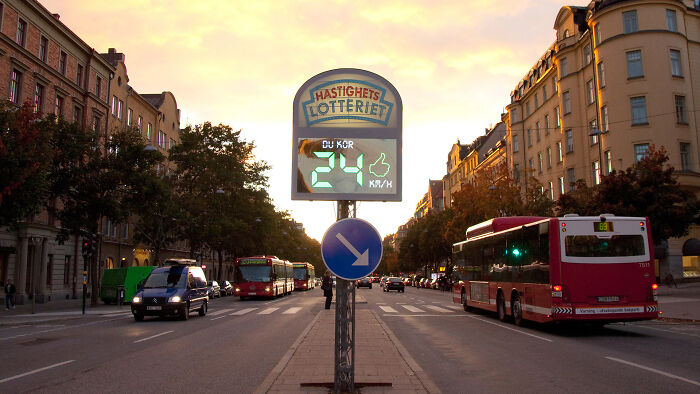

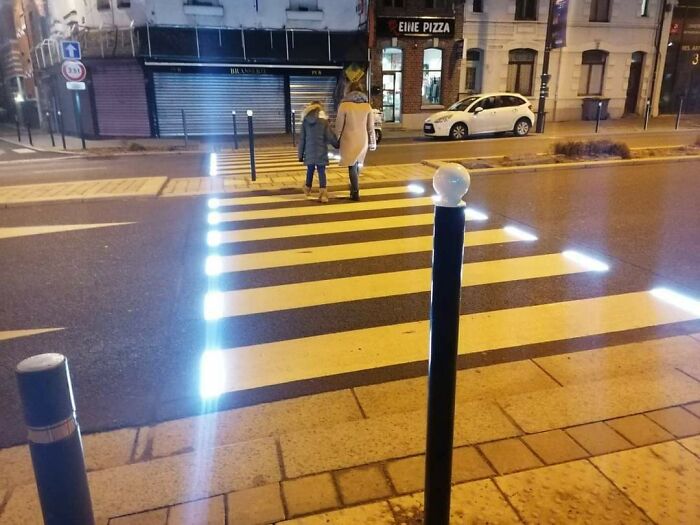
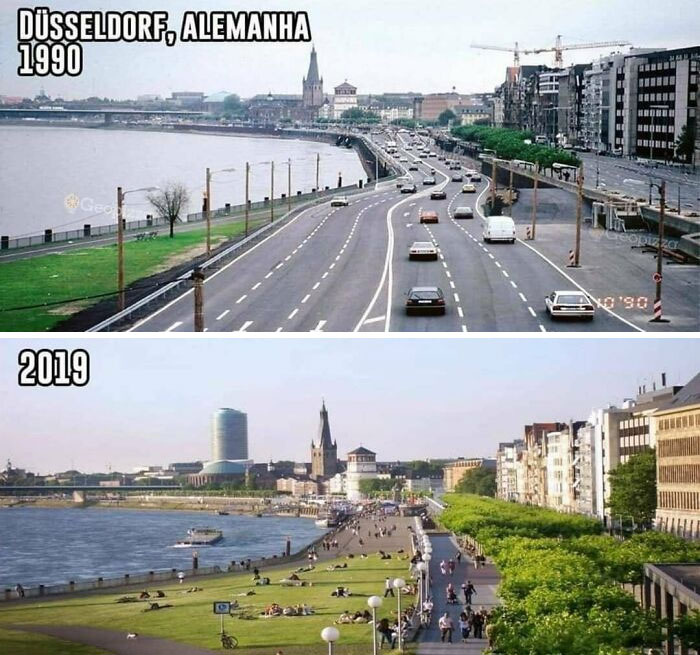
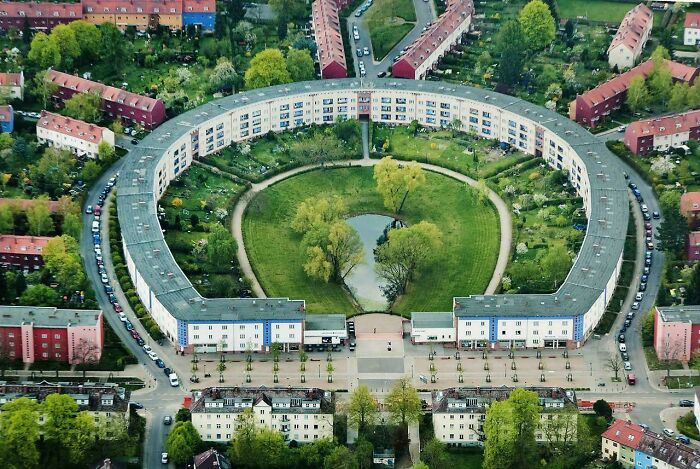
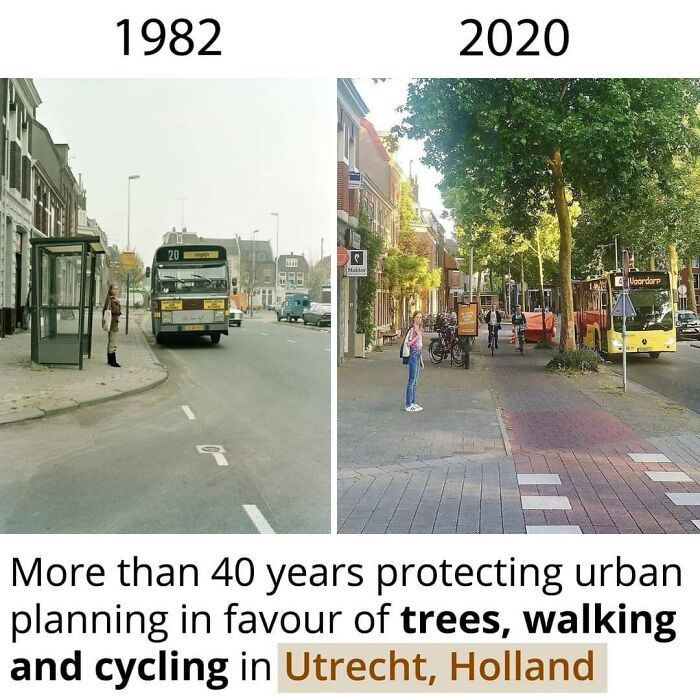
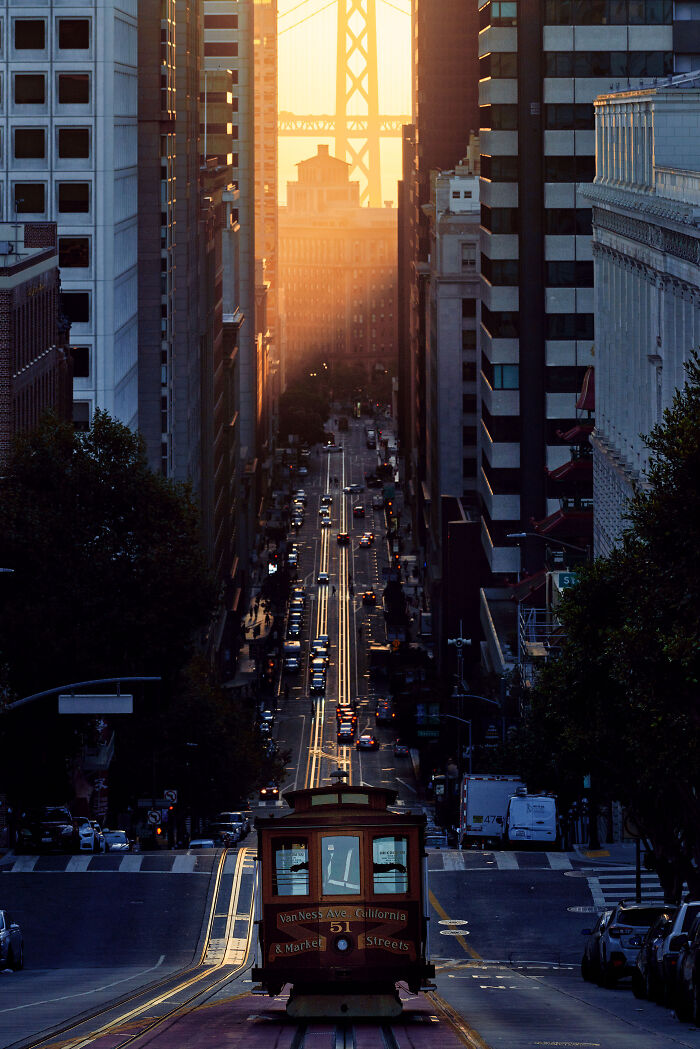
![I Dont Know Why, But I Just Love When City Elements Wrap Around Nature Like This. [oc] Photo Taken In Stockholm, Sweden I Dont Know Why, But I Just Love When City Elements Wrap Around Nature Like This. [oc] Photo Taken In Stockholm, Sweden](https://www.boredpanda.com/blog/wp-content/uploads/2023/03/6422b1bacf601_mPANXsB__700.jpg)
